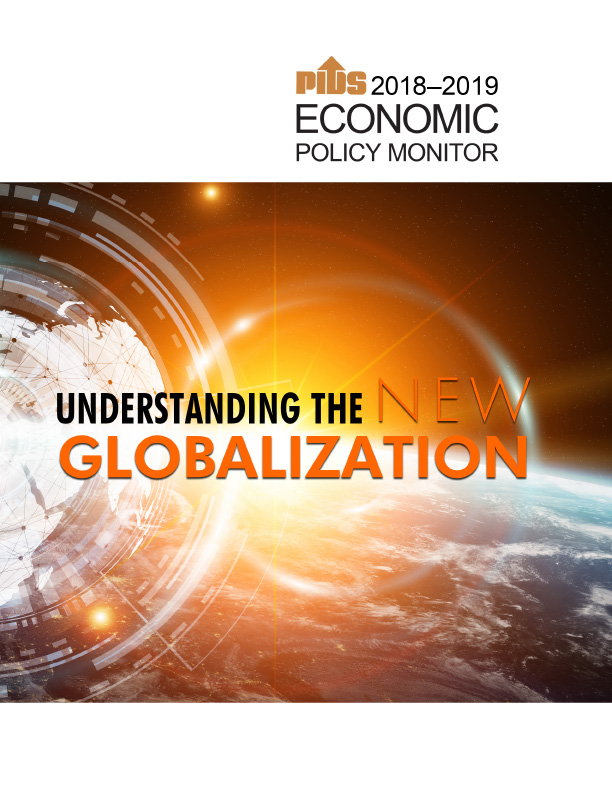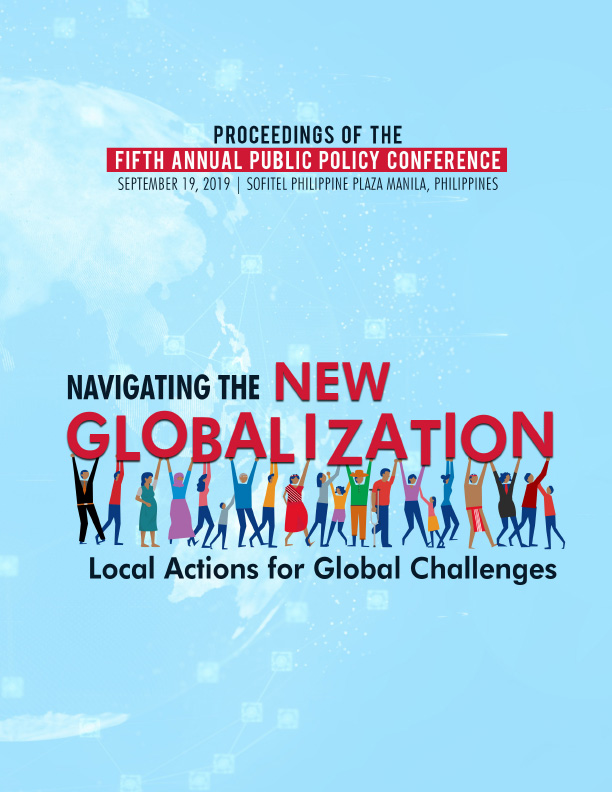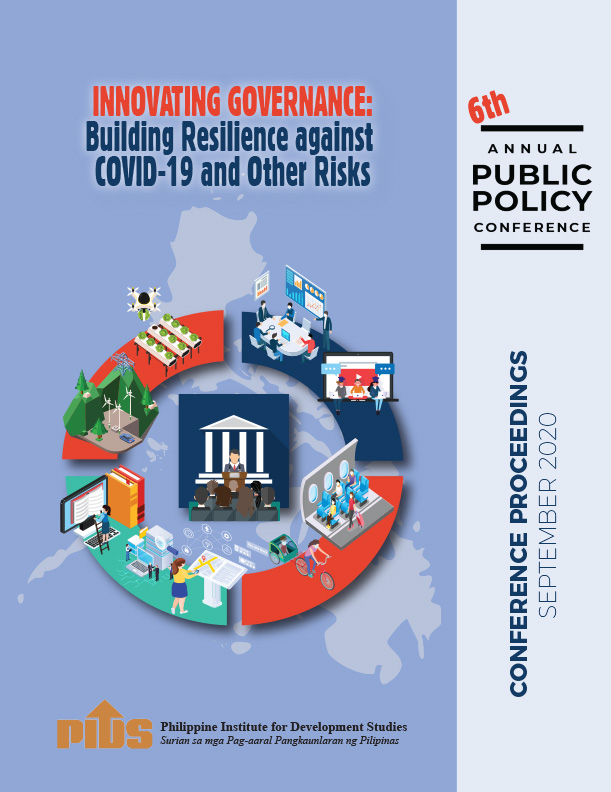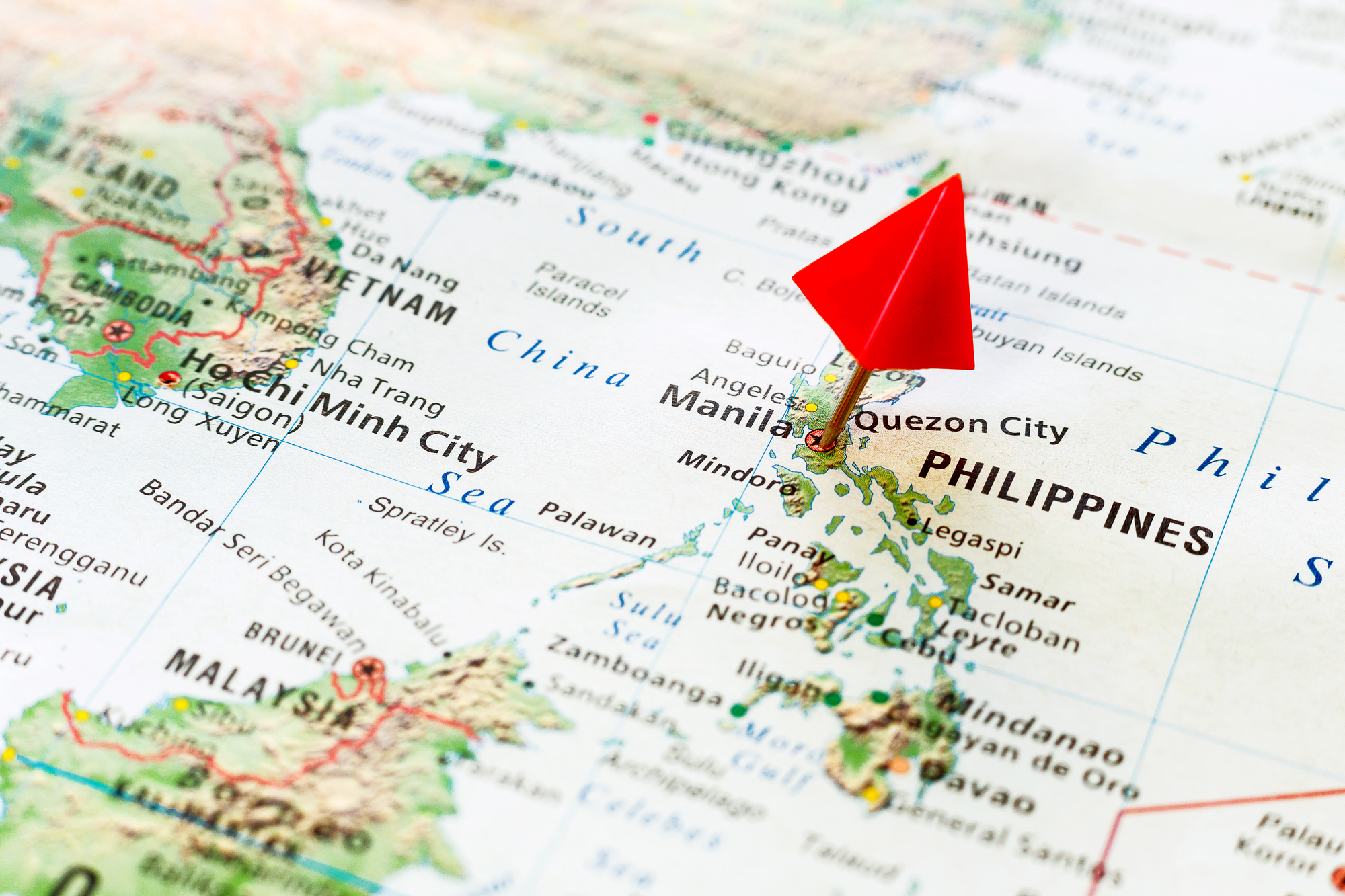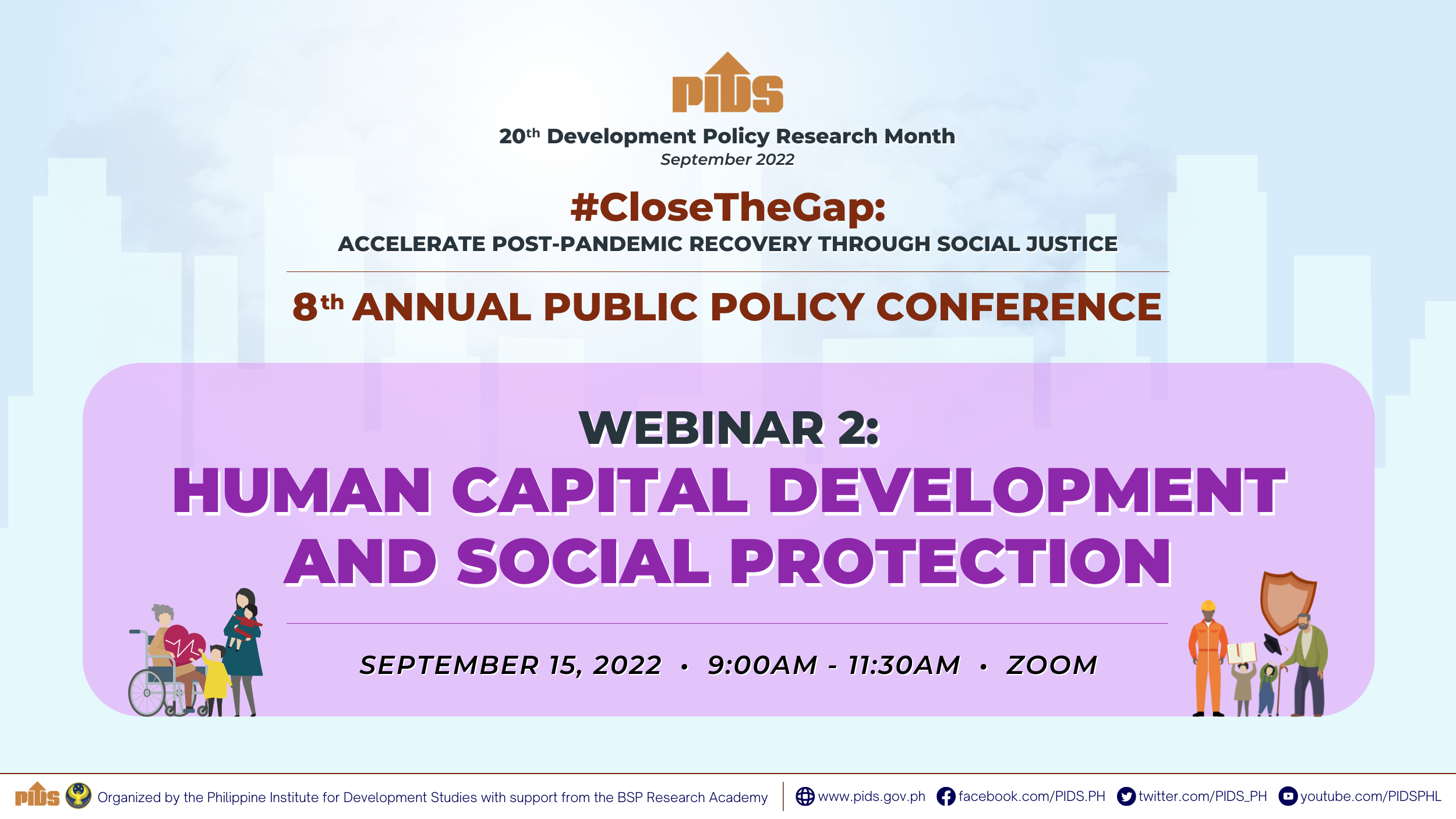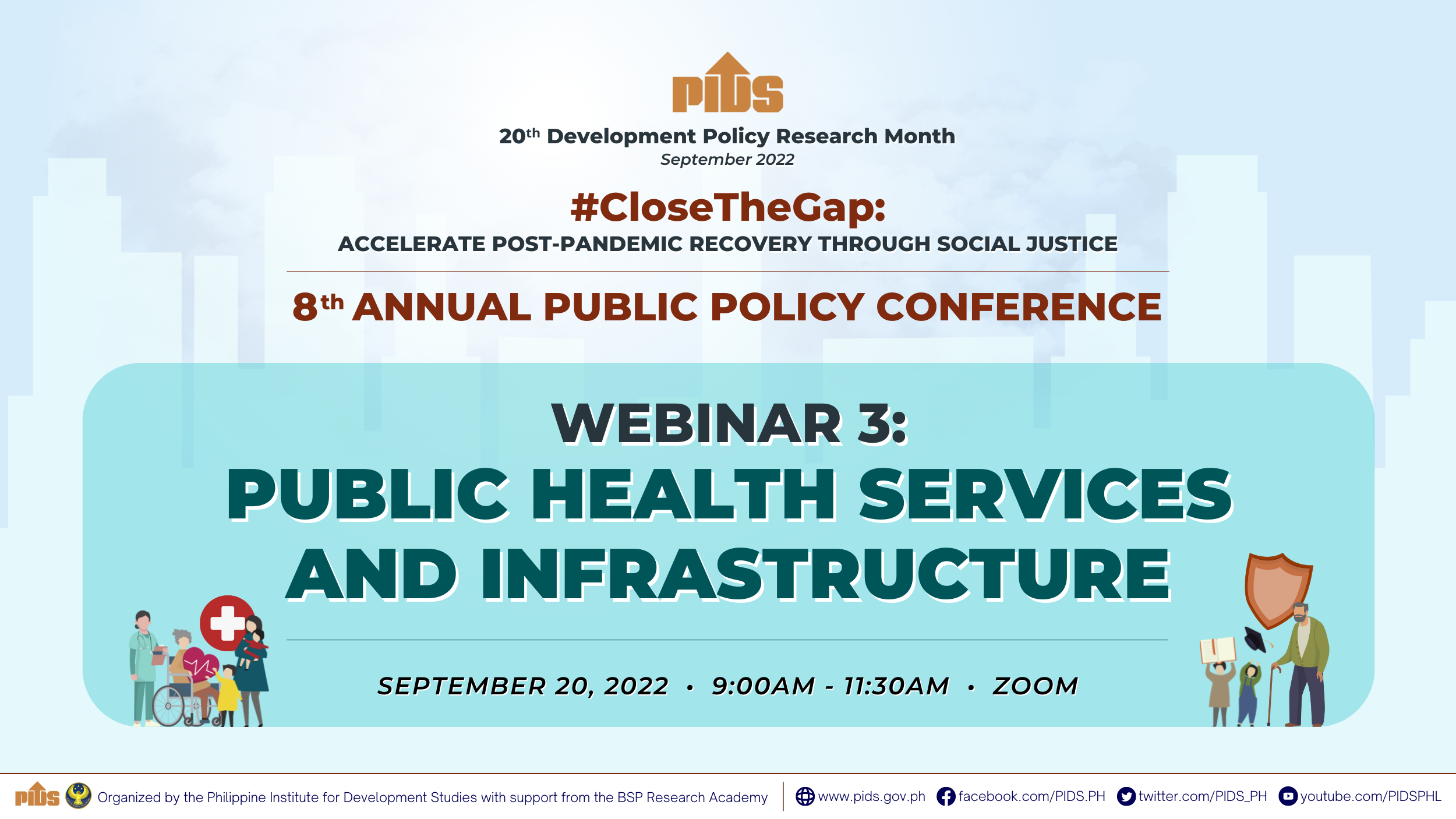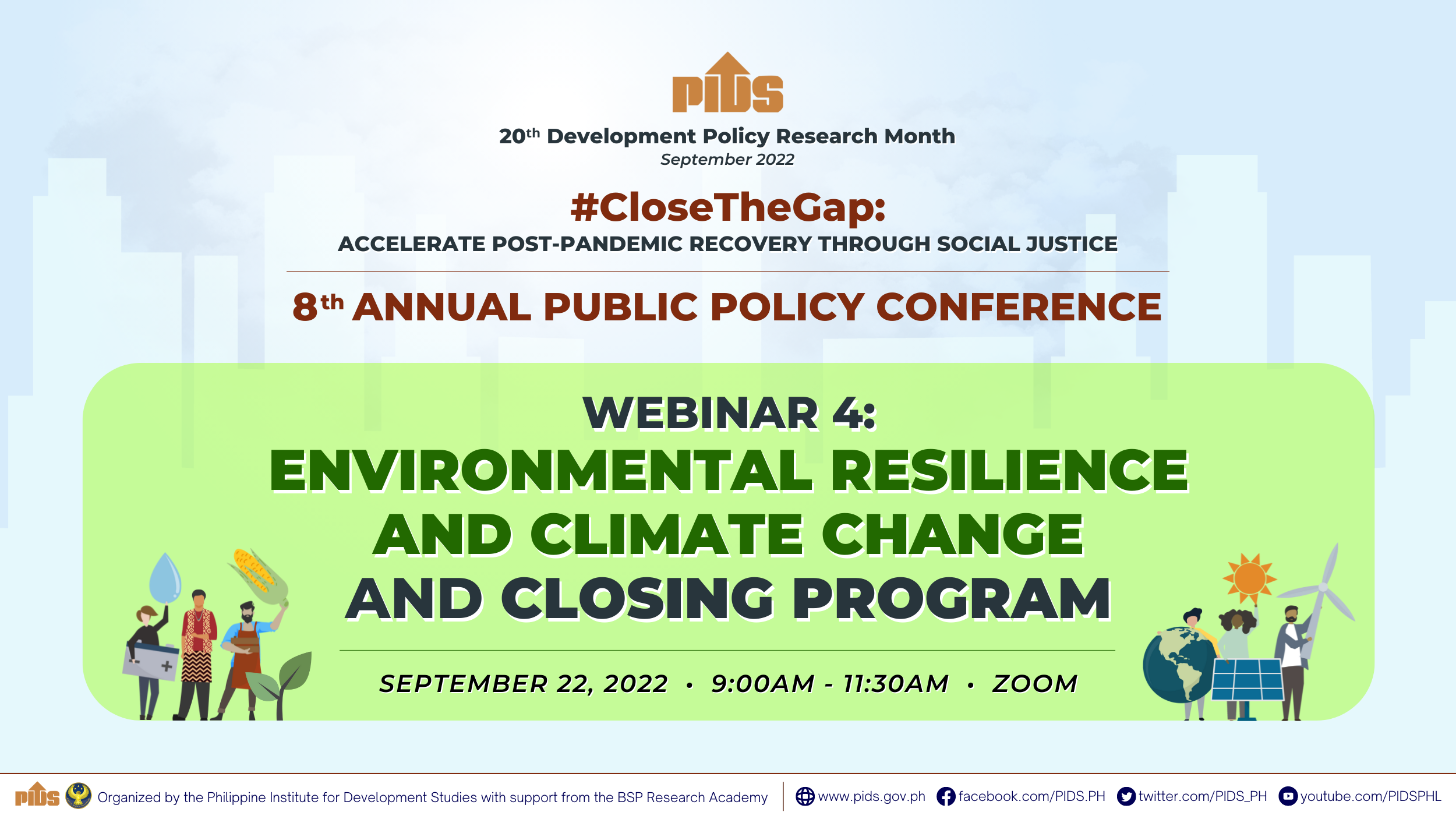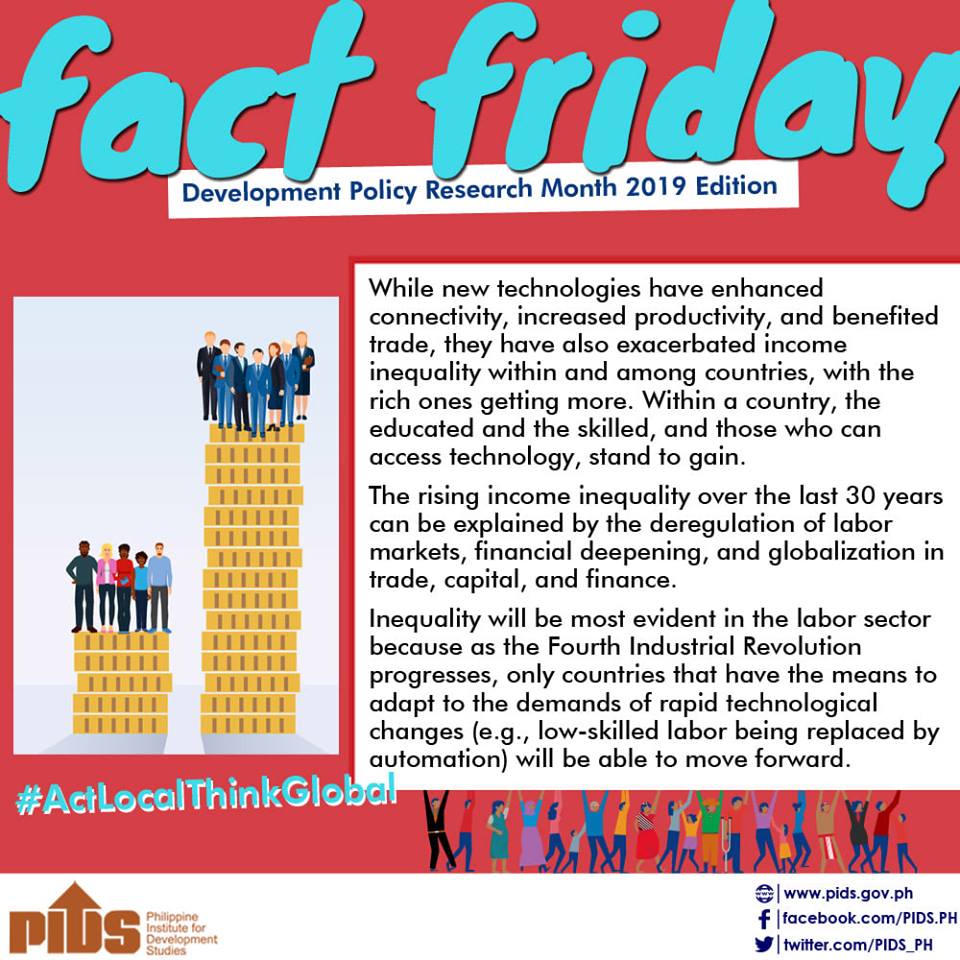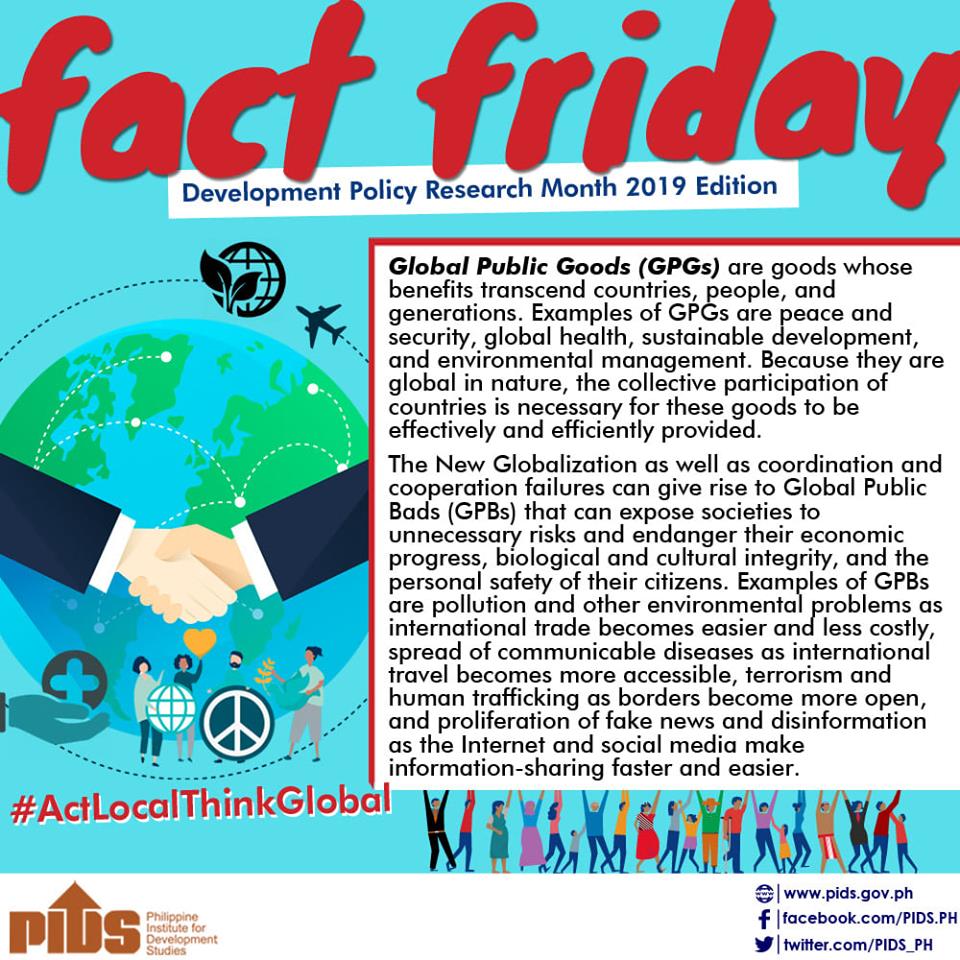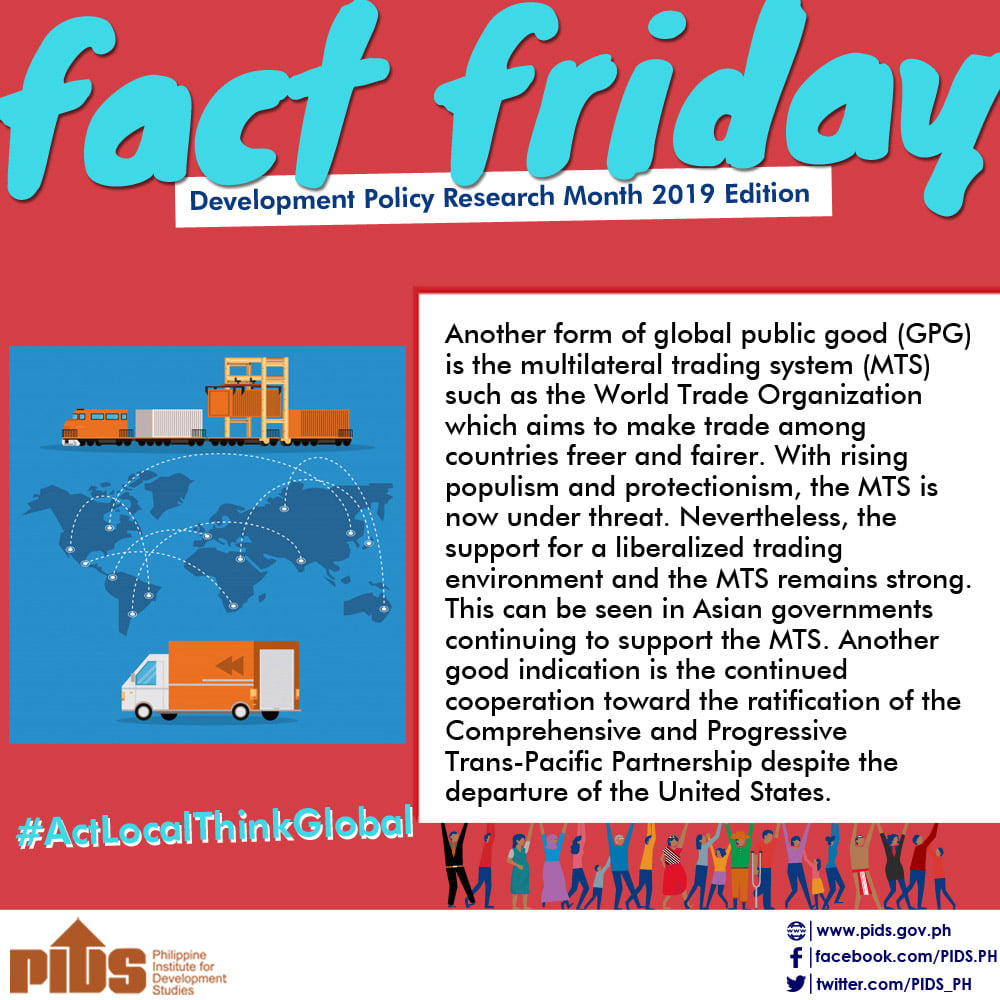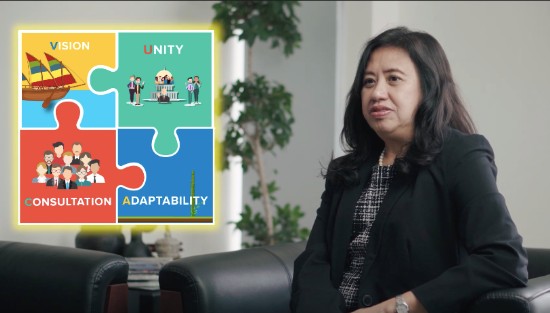
As the world enters the fourth phase of globalization—described by experts as full of volatility, uncertainty, complexity, and ambiguity, or in short, VUCA—state think tank Philippine Institute for Development Studies (PIDS) proposes its own VUCA (vision, unity, consultation, and adaptability) as antidote to the complex challenges that the new era of globalization brings.
In her opening speech at the Annual Public Policy Conference (APPC) held on September 19 at the Sofitel Philippine Plaza in Pasay City, PIDS President Celia Reyes cautioned that the new globalization could be "quite a test to navigate".
“Not only are we seeing the spread of advanced technologies that are driving innovation in many parts of the world but we are also witnessing major challenges such as global trade restructuring, trade wars, worsening poverty and inequality, underprovision of global public goods, erosion of trust and social cohesion, and proliferation of disinformation,” she said.
If not managed well, Reyes warned these challenges can pose detrimental impacts on the Philippines by weakening its ability to sustain its rapid economic growth.
Thus, to counter these challenges, Reyes said the country must have a shared vision of prosperity, inclusivity, resilience, and social cohesion, as well as a sense of unity among the government, academe, civil society, and the private sector. The public must also be consulted, she added, to ensure people’s participation in the development process. Lastly, Reyes emphasized the importance of building a society that is adaptable and resilient—open to new paradigms, business models, and regulatory frameworks.
These sentiments were echoed by Senator Aquilino “Koko” Pimentel III and Socioeconomic Planning Secretary Ernesto Pernia, who gave the closing and keynote speeches at the APPC, respectively.
Pimentel urged Filipinos to have the attitude and the aptitude of always anticipating the future and preparing for change.
“If we want us as a nation to succeed in any world order, we have to change our culture. We have to live under a culture of fairness, develop a culture of science, and cultivate a culture of honesty,” Pimentel said.
Having a fair society, he explained, means reducing the gap between the rich and the poor and having a justice system that works for everyone.
Pimentel also noted that having a strong culture of science will enable the Philippines to become a nation of scientists, inventors, programmers, and original manufacturers.
“Without a scientific culture, we will continue to be the consumers that we have always been. Hence, we need to start inventing and producing original things that the rest of the world wants,” he elaborated.
Lastly, he pointed out the need to solve corruption, which he said, has persisted not only in the government but also in the private sector.
Meanwhile, to keep up and properly react to changes brought by the new globalization, Pimentel said that a new Senate Committee on Sustainable Development Goals, Innovation, and Futures Thinking has been created. He likewise enumerated some proposed legislations such as the creation of the Department of Overseas Filipino Workers Bill (Senate Bill [SB] 92) to help address the problems of overseas Filipino workers, the Pondo para sa Pagbabago at Pag-asenso Program Bill (SB 95) to help address the problems of microentrepreneurs, and the Waste Importation Ban Bill (SB 98) to stop the so-called "global waste trade” or the importation of waste.
In addition, Pimentel also filed the Integration of the Computer Science in the Curriculum of the K 12 Program Bill (SB 99) and the Creation of the Research and Development Council of the Philippines Bill (SB 685) to boost research and development in the country.
Pernia, on the other hand, emphasized the importance of social cooperation and trust in government in achieving the country's vision of a prosperous and predominantly middle-class Philippines where no one is poor, as envisioned in AmBisyon Natin 2040.
A whole-of-society approach, he said, is needed to be able to meet these objectives. However, he noted that it is only through cultivating a high-trust society that this whole-of-society approach could work.
"It is only through cultivating trust that we will make people believe in each other—enough to cooperate and achieve our goals. In an environment of great volatility, uncertainty, complexity, and ambiguity, where the next turn of events astounds and bewilders us, we need to reach out and build trust," he maintained.
According to Pernia, the current administration has instituted several critical and broad-based reforms, which include the new Philippine Innovation Act, the Innovative Startup Act, and the Balik Scientist Act to partly deal with the Fourth Industrial Revolution.
“We have the Ease of Doing Business Act and the Philippine Identification System Act, the latter aiming to give a National ID to each Filipino, to ease transactions and obtain faster delivery of social services. For human capital development, we have the Universal Healthcare Law, Free Tuition for Tertiary Education, although some of us have mixed feelings about that, and the Executive Order to Attain Zero Unmet Need for Family Planning,” he added.
Started in 2015, the APPC is the culminating activity of the Development Policy Research Month, a nationwide celebration every September to highlight the importance of research evidence in policy and decisionmaking in the country. This year’s conference on the theme “Navigating the New Globalization: Local Actions for Global Challenges” was organized by PIDS in partnership with the Bangko Sentral ng Pilipinas, Department of the Interior and Local Government, National Economic and Development Authority, Department of Foreign Affairs, Philippine Competition Commission, Department of Trade and Industry, and Asian Development Bank. It was attended by over 400 representatives from the government, private sector, academe, and civil society.###
In her opening speech at the Annual Public Policy Conference (APPC) held on September 19 at the Sofitel Philippine Plaza in Pasay City, PIDS President Celia Reyes cautioned that the new globalization could be "quite a test to navigate".
“Not only are we seeing the spread of advanced technologies that are driving innovation in many parts of the world but we are also witnessing major challenges such as global trade restructuring, trade wars, worsening poverty and inequality, underprovision of global public goods, erosion of trust and social cohesion, and proliferation of disinformation,” she said.
If not managed well, Reyes warned these challenges can pose detrimental impacts on the Philippines by weakening its ability to sustain its rapid economic growth.
Thus, to counter these challenges, Reyes said the country must have a shared vision of prosperity, inclusivity, resilience, and social cohesion, as well as a sense of unity among the government, academe, civil society, and the private sector. The public must also be consulted, she added, to ensure people’s participation in the development process. Lastly, Reyes emphasized the importance of building a society that is adaptable and resilient—open to new paradigms, business models, and regulatory frameworks.
These sentiments were echoed by Senator Aquilino “Koko” Pimentel III and Socioeconomic Planning Secretary Ernesto Pernia, who gave the closing and keynote speeches at the APPC, respectively.
Pimentel urged Filipinos to have the attitude and the aptitude of always anticipating the future and preparing for change.
“If we want us as a nation to succeed in any world order, we have to change our culture. We have to live under a culture of fairness, develop a culture of science, and cultivate a culture of honesty,” Pimentel said.
Having a fair society, he explained, means reducing the gap between the rich and the poor and having a justice system that works for everyone.
Pimentel also noted that having a strong culture of science will enable the Philippines to become a nation of scientists, inventors, programmers, and original manufacturers.
“Without a scientific culture, we will continue to be the consumers that we have always been. Hence, we need to start inventing and producing original things that the rest of the world wants,” he elaborated.
Lastly, he pointed out the need to solve corruption, which he said, has persisted not only in the government but also in the private sector.
Meanwhile, to keep up and properly react to changes brought by the new globalization, Pimentel said that a new Senate Committee on Sustainable Development Goals, Innovation, and Futures Thinking has been created. He likewise enumerated some proposed legislations such as the creation of the Department of Overseas Filipino Workers Bill (Senate Bill [SB] 92) to help address the problems of overseas Filipino workers, the Pondo para sa Pagbabago at Pag-asenso Program Bill (SB 95) to help address the problems of microentrepreneurs, and the Waste Importation Ban Bill (SB 98) to stop the so-called "global waste trade” or the importation of waste.
In addition, Pimentel also filed the Integration of the Computer Science in the Curriculum of the K 12 Program Bill (SB 99) and the Creation of the Research and Development Council of the Philippines Bill (SB 685) to boost research and development in the country.
Pernia, on the other hand, emphasized the importance of social cooperation and trust in government in achieving the country's vision of a prosperous and predominantly middle-class Philippines where no one is poor, as envisioned in AmBisyon Natin 2040.
A whole-of-society approach, he said, is needed to be able to meet these objectives. However, he noted that it is only through cultivating a high-trust society that this whole-of-society approach could work.
"It is only through cultivating trust that we will make people believe in each other—enough to cooperate and achieve our goals. In an environment of great volatility, uncertainty, complexity, and ambiguity, where the next turn of events astounds and bewilders us, we need to reach out and build trust," he maintained.
According to Pernia, the current administration has instituted several critical and broad-based reforms, which include the new Philippine Innovation Act, the Innovative Startup Act, and the Balik Scientist Act to partly deal with the Fourth Industrial Revolution.
“We have the Ease of Doing Business Act and the Philippine Identification System Act, the latter aiming to give a National ID to each Filipino, to ease transactions and obtain faster delivery of social services. For human capital development, we have the Universal Healthcare Law, Free Tuition for Tertiary Education, although some of us have mixed feelings about that, and the Executive Order to Attain Zero Unmet Need for Family Planning,” he added.
Started in 2015, the APPC is the culminating activity of the Development Policy Research Month, a nationwide celebration every September to highlight the importance of research evidence in policy and decisionmaking in the country. This year’s conference on the theme “Navigating the New Globalization: Local Actions for Global Challenges” was organized by PIDS in partnership with the Bangko Sentral ng Pilipinas, Department of the Interior and Local Government, National Economic and Development Authority, Department of Foreign Affairs, Philippine Competition Commission, Department of Trade and Industry, and Asian Development Bank. It was attended by over 400 representatives from the government, private sector, academe, and civil society.###

